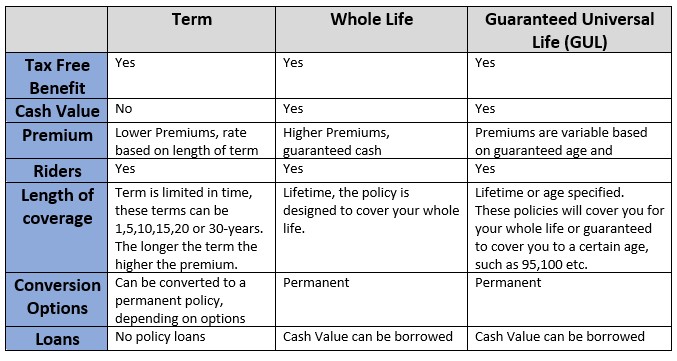Life Insurance 101: What is life insurance?

What is Life Insurance and how does it work?
For many people Life Insurance is something they don’t like thinking about and hope they will never need. In this article the goal is to help you understand what life insurance is and how it works, so you can make an informed decision to better protect your lifetime of hard work.
When you purchase Life Insurance, the Insurance Company “underwrites” your life. In other words, they look at your health, lifestyle and income to determine whether they will issue a contract obligating them to pay your beneficiary the face amount of an insurance policy for a specific premium amount.
One way to think about Life Insurance is to imagine that today was your last day of life. Then ask yourself, what will tomorrow’s financial picture be like for those you leave behind. Life Insurance insures tomorrow for those you leave behind.
Life Insurance insures your economic value: Your ability to work and produce income, your savings and assets grow in value while you are alive, these all have a financial value.
Not only does life insurance ensure your economic value but it allows your beneficiary to maintain a level of lifestyle your family is accustomed to. The policy provides a “Tax-Free” Benefit. This money will allow your family to continue living in their house, drive their cars and pay debts, without having life turned upside down.
Life Insurance Terms
Policy: A policy is the contract between the individual and the insurance company for a specified face amount with a premium and time limitations.
Policy holder: The owner of the insurance policy, the policy holder, can be the insured or someone else could be insured, usually having an insurable interest.
Face Amount: The death benefit that the policy pays the insured on a “Tax Free” basis.
Premium: The cost of the insurance policy, paid on a monthly, quarterly, semi-annual or annual basis
Term: The period the insurance policy guarantees the face amount and premium level, this could be for 1, 5, 10, 15, 20 or 30-years of more.
Whole Life: A life insurance contract which guarantees the face-amount and the cash-value of the policy by a certain period, usually age 100 or 120-years old.
Universal Life: A flexible permanent policy with flexible premium and cash values.
Beneficiary: The individual, individuals or organization who will receive the face amount of the policy when the insured dies.
Cash Value: The value within a permanent policy that can be withdrawn from the policy, this mainly applies to Whole Life and Universal Life.

